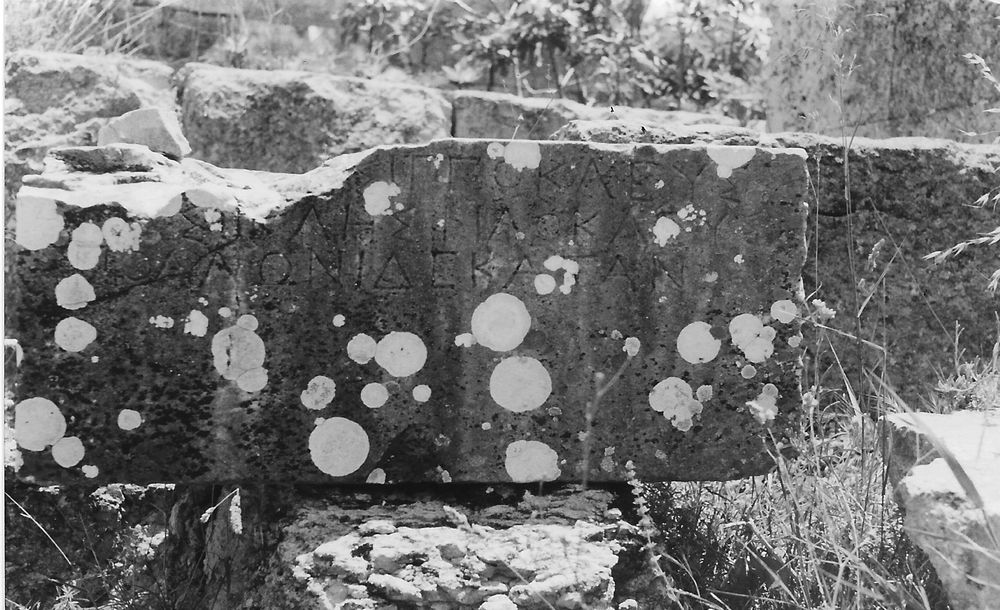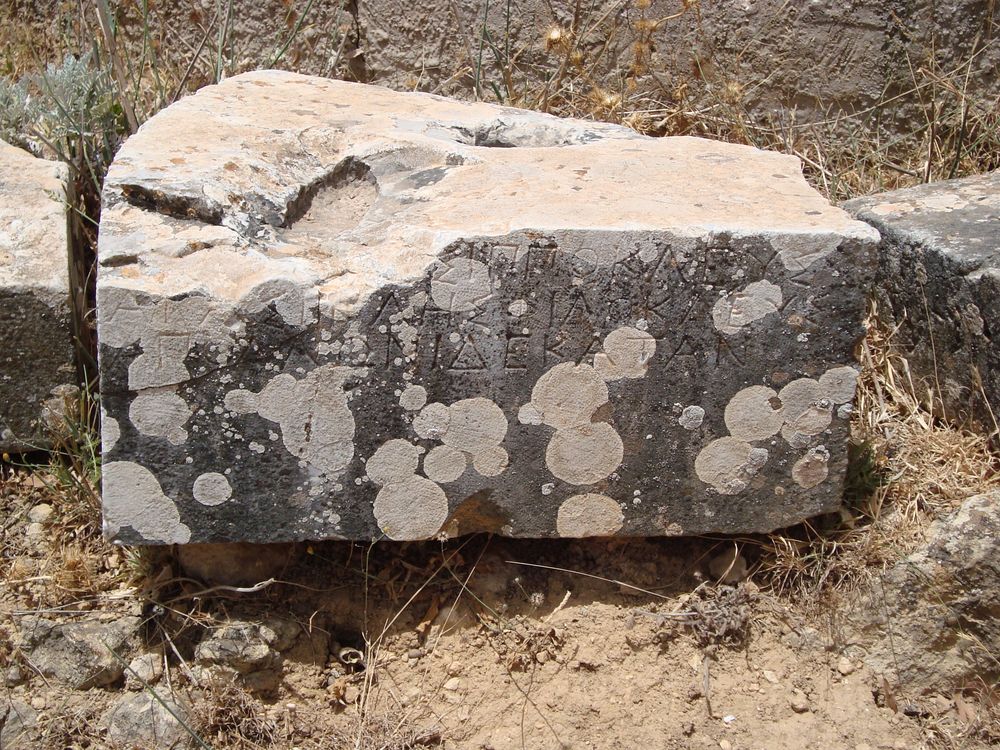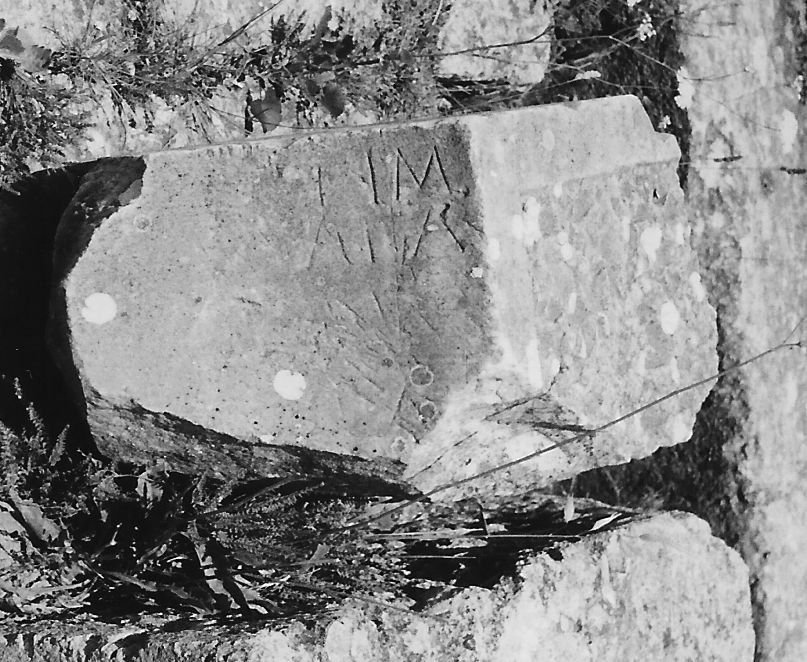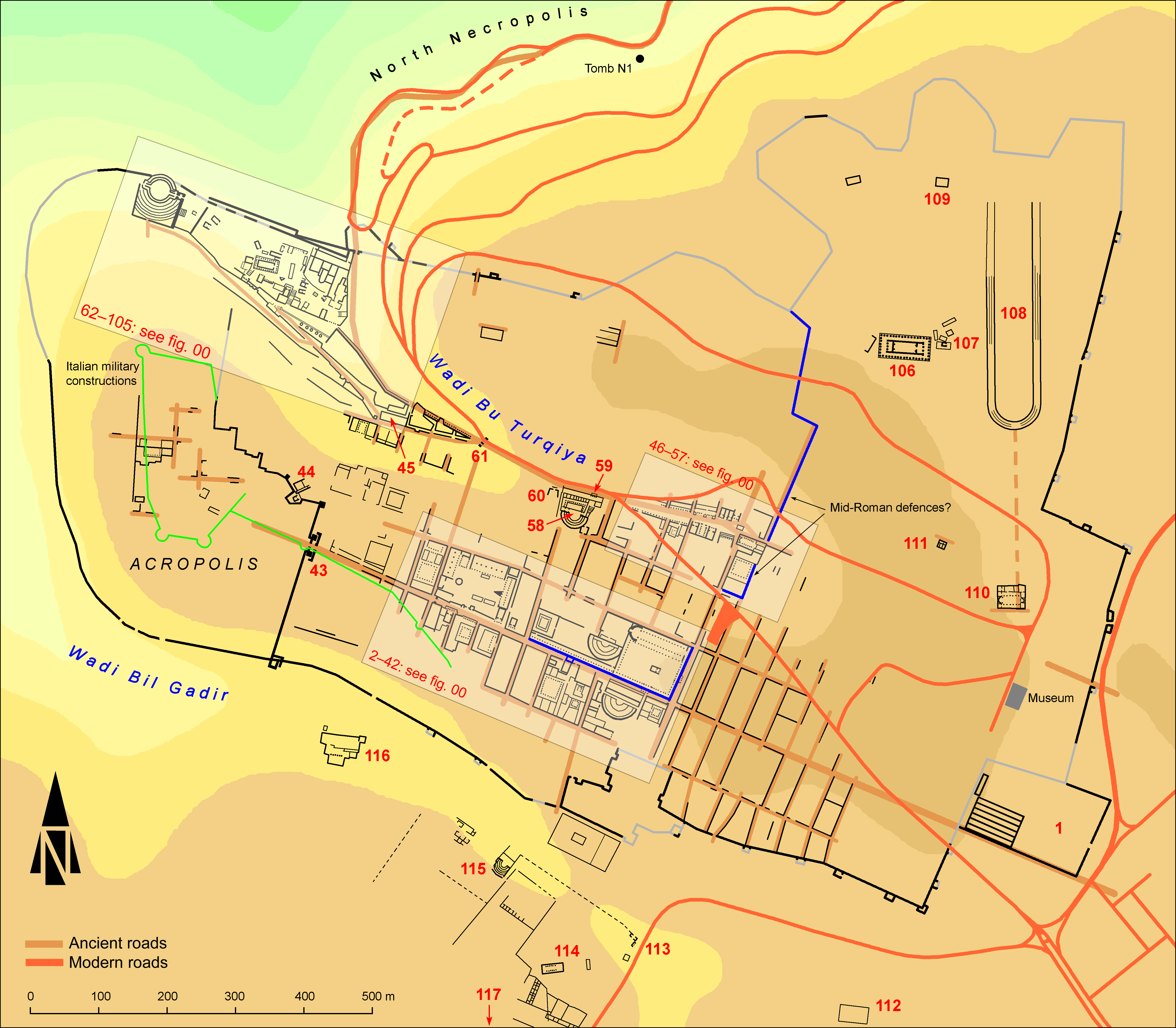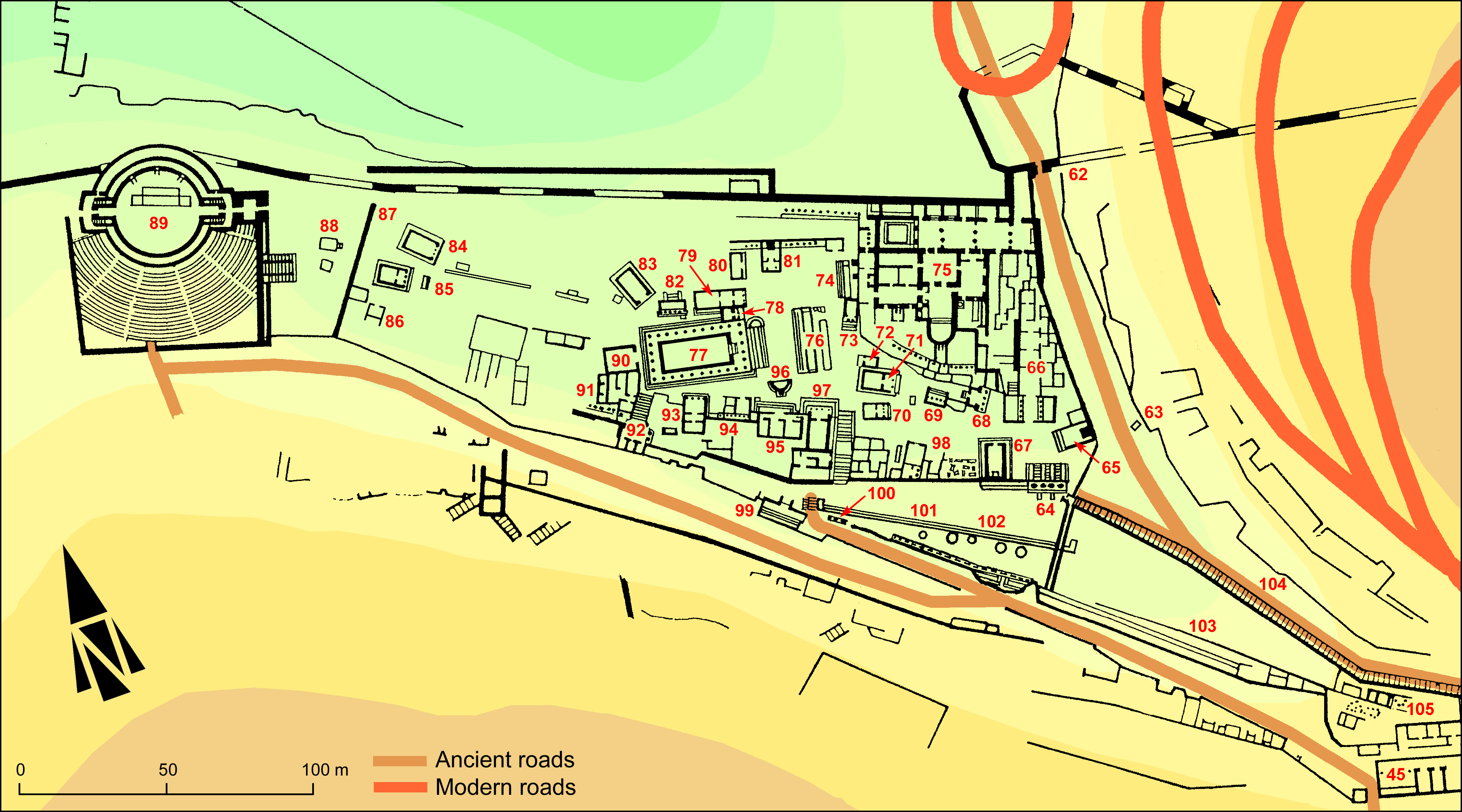EpiDoc XML:
IGCyr0089002
Trismegistos ID:
738192
Source description
Support: Two out of six blocks of greyish marble, forming together a semi-circular exedra, with holes and footprints on upper sides: A is the leftmost block and was in 1983 still attached to the adjacent block (not inscribed) on the right; B is a loose angle, prepared for attachment to another block on its right and broken off at left and bottom; grey marble (A: w: 0.74 × h: 0.325 × d: 0.57 B: h: 0.29 × d: 0.45).
Layout: Inscribed: A on loose side, looking to the lane; B on concave side, facing the visitor.
Letters: A: 0.04; B: 0.033; homogenous hand, careful lettering.
Date: Fourth to third centuries BC (lettering).
Findspot: Fragment A copied by R.M. Smith and E.A. Porcher in 1860;fragment B found by G. Oliverio probably in 1925 at Cyrene ➚: Sanctuary of Apollo, to the West of the so called Myrtle Bower.
Place of origin: Findspot.
Last recorded location: Seen by C. Dobias-Lalou on May 22nd, 1983 in situ, in the Sanctuary of Apollo.
Text constituted from: Transcription from stones (CDL).
Bibliography
Smith – Porcher 1864, n. 2, whence Blass, SGDI 4839 (fragment A); Oliverio , XI.48, XII.12, whence SECir, 35, fig. 33 (fragment A); Oliverio , XI.57, whence SECir, 185 (fragment B, without illustration, with reference to fragment A); IGCyr 008900 ➚.
Text
Apparatus
French translation
A. [Untel] fils d'Hippoklès et Agasiklès fils de Philoklès ont consacré à Apollon comme dîme.
B. Tim[---] fils d'Aga[---].
English translation
A. [So-and-so] son of Hippokles and Agasikles son of Philokles dedicated to Apollo as a tithe.
B. Tim[---] son of Aga[---].
Italian translation
A. [Il tale] figlio di Hippokles e Agasikles figlio di Philokles hanno dedicato ad Apollo come decima.
B. Tim[---] figlio di Aga[---].
Commentary
Pugliese Carratelli was right in attributing both blocks to the same exedra, but his restorations are not cautious enough.
At A.1 the space is not sufficient for the 8 letters he supposes.
B has not the whole formula of dedication, but probably bears on two lines the name and patronym of the person whose statue stood above. The 4th letter of the patronym is surely no Σ, but might be Μ, Ν or Κ, rather than I.
CC BY-NC-SA 4.0 Deed Attribution-NonCommercial-ShareAlike 4.0 International License.
All citation, reuse or distribution of this work must contain a link back to DOI: https://doi.org/10.60760/unibo/igcyrgvcyr2 and the filename (IGCyr000000 or GVCyr000), as well as the year of consultation.
